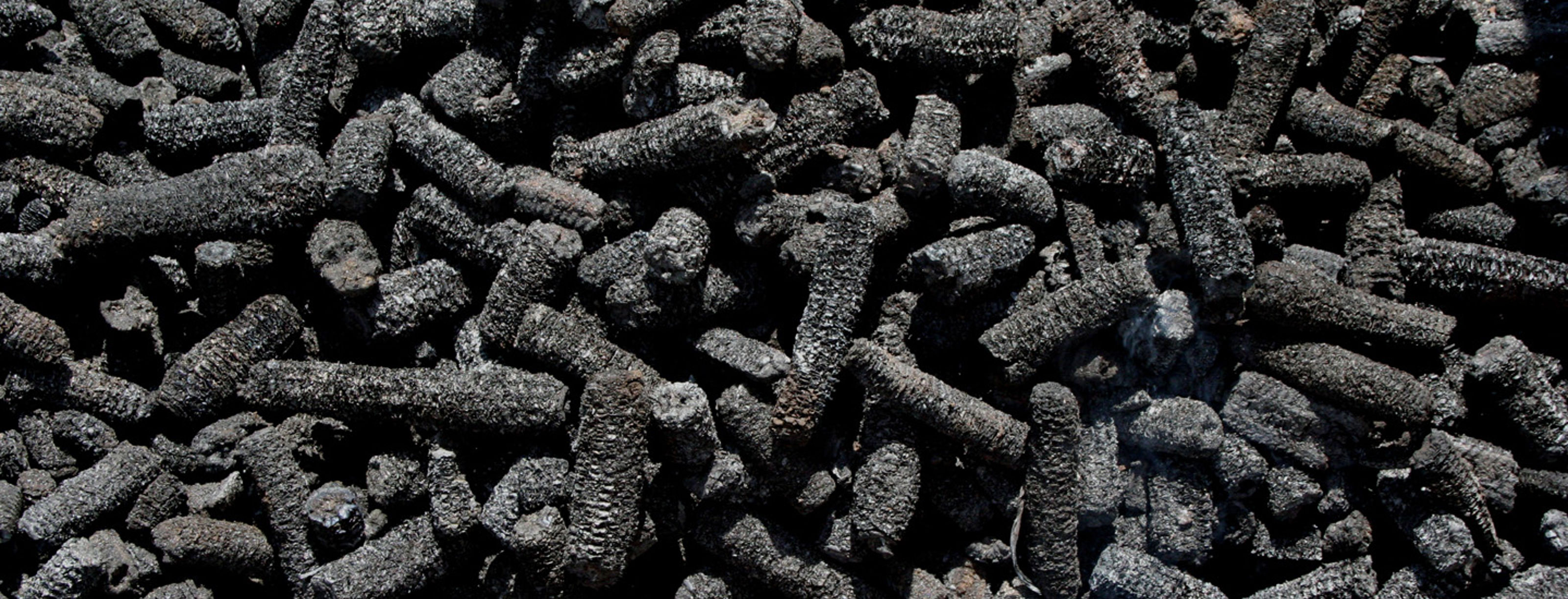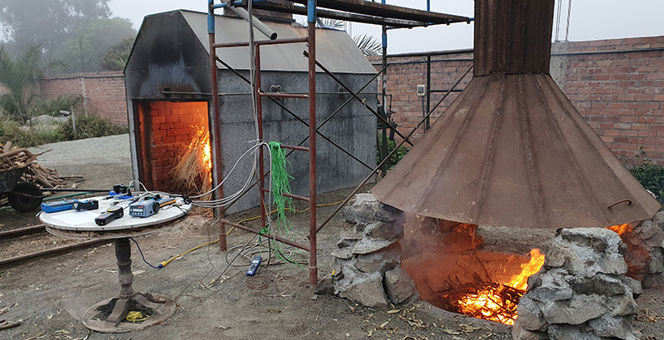Biochar
Biocoal is engineering charcoal that is produced through incomplete combustion of organic material. Mixed in soil, biochar will reduce emissions of CO2, prevent the spread of pollution and increase production on agricultural land.

Biochar can be made from all types of organic waste, even sewage sludge, as long as the biomass is dry enough. NGI has been researching biochar for over ten years, and we believe biochar is an ingenious way to reuse organic fractions that are otherwise wasted. There are several advantages of biochar:
- Measures to reduce climate change: When you mix biochar with soil, the char will not break down. This means that the carbon in the coal is stored in the ground, which is much better for the climate than the organic material breaking down into CO2.
- Microplastics and organic pollutants such as PFAS in the waste are broken down at high pyrolysis temperatures.
- Reduction of the leaching of pollutants: Many common contaminants in the soil will be bound to the biochar. This prevents the pollutants from leaking into the water and pollutants from becoming available for absorption by organisms and people. One of NGI's most important discoveries is that a 1% addition of biochar from sewage sludge can reduce the leaching of PFAS from contaminated soil by over 99%!
- Soil improvement: Biochar leads to increased production on agricultural land. Biochar improves soil by increasing the pH in acidic soil; the ground gets higher moisture, and better retains nutrients essential for plant growth.

Burning of biochar
The production of biochar can also be a means of combating poverty. In many projects, NGI has taught the production of biochar to farmers in developing countries, including in a project with 7,000 farmers in Tanzania. Farmers have been able to increase production in areas with depleted soils that have been degraded by drought, lack of plant nutrients, or acidification.



Håkon Austad Langberg
Senior Engineer Environment and Rock Engineering hakon.austad.langberg@ngi.no+47 472 42 944

